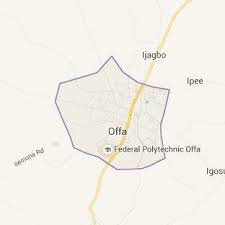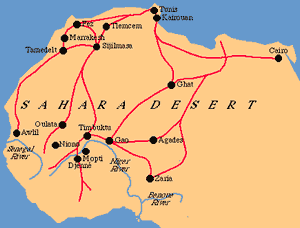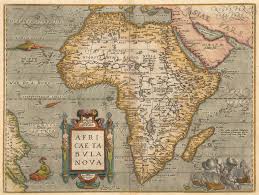History of Offa: A Journey Through Time and Culture

History of Offa: A Journey Through Time and Culture
Discover the Rich History of Offa, an ancient town with deep cultural and historical significance in Nigeria.
Omo abisu jooko! (Sit down, children of Offa!) Welcome to Offa, a town steeped in centuries of history and culture, in southeastern Kwara State, Nigeria. Known for its resilience, strategic significance, and cultural vibrancy, Offa is not just a town but a living testament to the enduring spirit of the Yoruba people.
The Origins of Offa: A Town Born from Legend
Offa's history begins in the 14th century with the legendary hunter Olalomi Olofagangan, who founded the town after fleeing the powerful Oyo Empire. Olofagangan's journey, marked by challenges and perseverance, led him to settle by the Maika River, where the town of Offa would eventually rise.
The name "Offa" itself holds a special significance—it is derived from the Yoruba word "OFA", meaning bow and arrow, reflecting the hunting tools Olofagangan used. As a skilled hunter and warrior, Olofagangan's leadership helped establish Offa as a stronghold and frontier town within the Oyo Empire, defending it from external threats such as the Nupe and Fulani invasions. His courage and tactical acumen ensured Offa's survival during these tumultuous times.
Offa’s roots are deeply tied to the Yoruba people and the larger cultural framework of the Yoruba Kingdoms. The people of Offa are descendants of Oduduwa, the revered patriarch of the Yoruba nation, and they speak the Ibolo dialect, a branch of the Yoruba language. This dialect is shared with several neighboring towns in Kwara and Osun States, reinforcing the interconnectedness of the region's people.
Offa as a Military and Political Power
Offa's historical importance is not limited to its founding story. As a frontier town in the Oyo Empire, it played a pivotal role in defending the empire’s borders. The Oyo Empire, one of the most powerful kingdoms in West Africa, faced frequent threats from neighboring regions, and Offa was strategically positioned to guard the empire from the north.
Offa's military prowess was crucial in repelling invasions by the Nupe and Fulani peoples, both of whom sought to expand their territories. The town’s strategic location made it an essential military outpost, where warriors from Offa were trained and equipped to protect the integrity of the Oyo Empire.
The Olofa, the traditional ruler of Offa, was not only the political leader of the town but also a figurehead of military strength and cultural unity. The Olofa’s role as the head of the Ibolo-speaking Yoruba people extended beyond Offa’s borders, impacting neighboring towns and villages within Kwara and Osun states.
Cultural Festivals: A Celebration of Identity and Tradition
Offa is renowned for its vibrant cultural festivals, which serve as both entertainment and a reaffirmation of the town’s rich heritage. Two of the most prominent festivals are Onimoka and Egungun (Masquerades).
Onimoka Festival: A Celebration of Precision and Spirituality
The Onimoka Festival is the centerpiece of Offa’s cultural calendar. Held annually, it is a time when the people of Offa come together to celebrate their history, strength, and unity. One of the most unique and awe-inspiring features of Onimoka is the blindfolded yam-slicing contest. During this event, a participant, blindfolded, is tasked with slicing a yam tuber into two equal parts. The precision required to accomplish this feat leaves the crowd astounded, and the event symbolizes the town’s historical resilience and resourcefulness.
Another high point of the Onimoka Festival is the wrestling match between the Olofa and Eesa, one of his chiefs. Wrestling is an ancient tradition that holds deep cultural significance in Offa, with the town’s eulogy "Ijakadi Loro Offa" meaning “wrestling is our game.” The match is not just a physical contest but also a symbolic act of leadership, strength, and unity.
In addition to the festivities, the Onimoka Festival is marked by a celebration of the Moremi deity. According to Yoruba legend, Moremi, a queen from Ife, was married to the Ooni of Ife after a conquest. She is revered as a figure of beauty, wisdom, and bravery. During Onimoka, the Olofa offers prayers, makes sacrifices, and performs rituals to honor Moremi, seeking blessings for peace, prosperity, and protection for the town.
Egungun Festival: The Masquerades of Offa
The Egungun Festival is another significant cultural celebration in Offa. Egungun, meaning masquerades in Yoruba, involves the community's youths dressing in colorful, ornate masks and robes. These masqueraders travel from place to place, entertaining the townspeople with dances, performances, and blessings. They are also rewarded with cash gifts from the community, which further emphasizes the communal nature of the festival.
The Egungun Festival is both a spiritual and social event. It is believed that the masqueraders channel the spirits of ancestors, bringing blessings and protection to their benefactors. The festival highlights the Yoruba people’s deep spiritual connection to their ancestors and the ongoing relationship between the living and the dead.
Offa in Modern Times: A Cultural and Educational Hub
While Offa’s historical and cultural traditions are deeply rooted in its past, the town has evolved into a modern center of education, commerce, and industry. Today, Offa is home to several important institutions of learning, including the Federal Polytechnic Offa, established in 1992, and the Kwara State College of Health Technology. These institutions contribute to Offa’s growing reputation as an educational hub in the region.
Offa is also known for its agricultural production, especially as the "home of sweet potatoes", and it continues to thrive as a key center for the production of cattle, goats, and sheep. The fertile land surrounding the town ensures that agriculture remains an integral part of Offa’s economy.
In addition to its agricultural success, Offa has embraced modern development with increasing investments in infrastructure. The town is well-connected by rail and road, making it a vital transit point between the northern and southern parts of Nigeria.
Offa’s Identity: Beauty, Strength, and Innovation
Offa’s identity is reflected in its vibrant history, cultural festivals, and modern achievements. The peacock, the town's mascot, symbolizes the beauty and pride that Offa holds in its culture and natural environment. The peacock’s colorful feathers are a metaphor for the town’s rich diversity and the strength of its people, who have overcome centuries of challenges to remain a prominent force in the region.
The town’s nickname, “Ijakadi Loro Offa” (wrestling is our game), is a fitting tribute to the people of Offa, who, like their ancestors, continue to fight for progress and unity. Offa stands as a living example of how a community can honor its past while embracing the opportunities of the future.
Whether through its cultural festivals, educational institutions, agricultural practices, or role in the larger socio-political landscape, Offa remains a symbol of pride, resilience, and hope for future generations.
Additional Details:
- Religious Diversity: Offa has also embraced a mix of Islam, Christianity, and Traditional Yoruba religion. This diversity has fostered a unique blend of religious harmony, where the various faiths coexist peacefully and participate in the town’s social and cultural life.
- Prominent Individuals: Offa is home to Chief Adesoye, the founder of Okin Biscuits, one of Nigeria's most famous biscuit manufacturers, which has brought recognition to the town both locally and internationally. The town is also home to Adesoye College, one of the top private schools in Nigeria, which has contributed to the town's educational prominence.
- Surrounding Towns: Offa’s central location in the region makes it an important center of commerce and culture, surrounded by towns such as Erin Ile, Ijagbo, and Ilemona. These neighboring communities benefit from Offa's economic and cultural influence.


